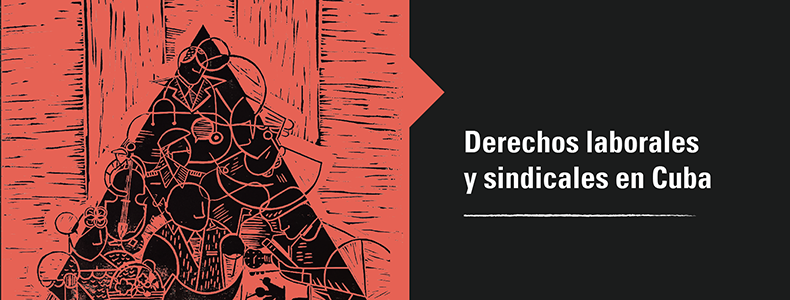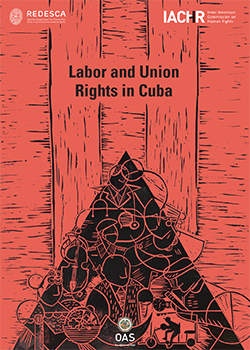
Press Release
IACHR and REDESCA present the Report on Labor and Union Rights in Cuba
April 21, 2023
Contact info
IACHR Press Office
Distribution List
Washington, D.C. - The Inter-American Commission on Human Rights (IACHR) and the Special Rapporteurship for Economic, Social, Cultural and Environmental Rights (REDESCA) present the thematic report on labor and union rights in Cuba, which aims to make visible the human rights violations faced by workers in the country; and provide recommendations to the State to contribute to the protection of labor and union rights, as well as access to justice in relation to such rights.
In this report, the IACHR and REDESCA analyze the situation of labor and union rights in Cuba in light of Inter-American standards, while identifying areas of concern affecting workers on the island. Information provided by civil society organizations, international organizations, academia, and specialists was used, including information gathered during the ex officio hearing on the "Situation of Labor and Trade Union Rights in Cuba" held in June 2022.
In this report, the IACHR and REDESCA present the voices of the Cuban people and incorporate testimonies of workers and former officials of the Cuban Justice System, who describe their experiences and share the realities they face.
The report includes 7 chapters: i) introduction; ii) context of human rights in Cuba; iii) labor rights; iv) union rights; v) access to justice, due process, and judicial protection; vi) business and human rights; and vii) conclusions and recommendations to promote actions to guarantee labor and trade union rights.
Throughout the report, the IACHR and REDESCA explore the labor rights situations of workers considering the Cuban social and political context, in light of the international conventions ratified by the State and the Inter-American standards. They analyze the main challenges in trade union matters and emphasize freedom of association, collective bargaining, and the right to strike, as well as the topic of business and human rights. In addition, they present the main obstacles faced by Cuban workers in access to justice, due process, and judicial protection and expose the international obligations of the State.
In particular, the IACHR and REDESCA warn about the persistence of systematic patterns of labor rights violations, particularly due to the lack of democracy that prevents the full exercise of labor rights, which are affected by the socioeconomic context that the country is going through, and which are linked to situations of precarious labor conditions, worsening hiring conditions, absence of occupational health and safety measures, lack of freedom of expression. Likewise, persecution for political reasons in the labor context and the structural discrimination that affects Afro-Cubans, women, persons with disabilities, the elderly, and LGBTI persons are particularly highlighted in the report.
In publishing the report, Commissioner and Country Rapporteur Stuardo Ralón emphasized: “The Commission and REDESCA deepen the analysis of the situation of labor and trade union rights to establish objective and specific guidelines, which will make it possible to address the issue from an approach of indivisibility and interdependence of human rights. All the recommendations of the report can only be fulfilled if the Cuban regime evolves towards a democratic transition, as without democracy human rights cannot be respected". For her part, the Special Rapporteur on DESCA, Soledad García Muñoz, said: "This report is the first to examine the situation of labor and trade union rights in Cuba. Its findings and recommendations leave no doubt about the urgency of protecting workers on the island, as well as in internationalism missions in which health professionals are part of".
The IACHR is a principal and autonomous body of the Organization of American States (OAS), whose mandate stems from the OAS Charter and the American Convention on Human Rights. The Inter-American Commission is mandated to promote the observance and defense of human rights in the region and acts as a consultative body to the OAS in this area. The IACHR is composed of seven independent members who are elected by the OAS General Assembly in their personal capacity and do not represent their countries of origin or residence.
No. 071/23
4:35 PM



